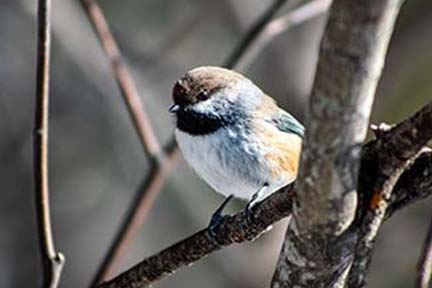
DNR News Digest – Week of March 4, 2024
|
||||||||||||||||
|
||||||||||||||||
News Digest – Week of March 4, 2024
|
||||||||||||||||
|

|
||||||||||||||||
|
||||||||||||||||
News Digest – Week of March 4, 2024
|
||||||||||||||||
|
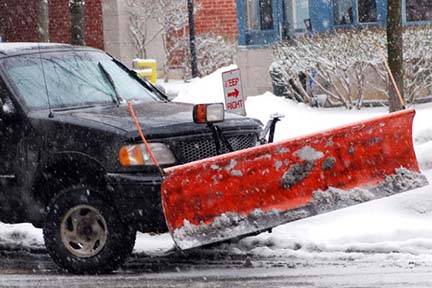
March 4, 2024
Contact: press@michigan.gov
Gov. Whitmer Urges Small Businesses Impacted by Lack of Snow to Apply for Available Federal Funding
Amid the warmest winter on record, businesses in federally designated areas can apply for Economic Injury Disaster Loans
LANSING, Mich. — As Michigan continues to face record high winter temperatures, Governor Gretchen Whitmer urged Michigan small businesses impacted by lack of snow to apply for federal funding from the Small Business Administration (SBA). Amid the warmest winter on record, with days in February and March topping 60 degrees, federal Economic Injury Disaster Loans are available because of ongoing federal drought declarations affecting 42 Michigan counties.
“Michiganders are used to tough winters, but this year’s record-setting warm winter has been tough in a different way, causing economic hardships for small businesses and regional economies that rely on snow,” said Governor Whitmer. “I know how hard this winter has been on families and communities who rely on winter tourism revenue and all the associated business that comes with it—hotels, restaurants, and shops. Fortunately, businesses in these 42 counties in the UP and the Northern Lower Peninsula can apply for support right now. A drought is a drought—whether we’re talking about rain or snow. Businesses impacted by low snow in these 42 counties can apply for support right now, and I’ll continue to push our federal government for more solutions. We’ll get through this warm winter together.”
Record-Breaking Winter
“It’s all hands on deck to ensure our small businesses affected by the unseasonable lack of snow across the First District are able to make it through this tough winter,” said U.S. Representative Jack Bergman. “Working together with the Governor, business owners, and local leaders, we will continue to take every step possible to extend necessary resources and assistance to help our communities thrive through this unprecedented winter.”
“The many great businesses that depend on a winter wonderland need this chance to access relief funds,” said state Senator Ed McBroom (R-Vulcan). “Winter will be back next year, and we want these shops to be open and ready to serve the visitors who come to the UP.”
“This winter has been especially hard on our businesses that rely on snow. From ski hills to hotels and restaurants, many businesses I’ve spoken to are concerned whether they can even make it to the summer,” said state Senator John Damoose (R-Harbor Springs). “Thank you to all who took the time to meet with us and to the Governor for working with the Small Business Administration to help make special low-interest EIDL loans available. I encourage all of our businesses to move quickly to secure this critical support.”
“The lack of snow this winter has had a profound impact on our local seasonal economies and the people who depend on them, especially in the U.P.,” said state Representative Jenn Hill (D-Marquette). “I appreciate the governor encouraging Michigan’s small businesses to take advantage of the aid that’s available. We all want to ensure our communities remain resilient in the face of these unexpected challenges.”
“Michiganders up north know that getting through the winter means pulling together. That’s true during unusually warm winters, too,” said state Representative Betsy Coffia (D-Traverse City). “This unseasonably warm winter has created unique challenges, especially for those businesses that rely on snow for a strong tourist season. So, I certainly echo Governor Whitmer’s call for small businesses to apply for SBA funds in the face of these unpredictable and difficult times.”
Drought Designation
42 Michigan counties are covered by a disaster designation for drought from the U.S. Department of Agriculture. Through SBA declarations related to those designations, businesses in these counties may be eligible for emergency loans that offset their business losses if the loss is related to the drought.
There are the 42 counties covered by four different SBA drought declarations. Where two declarations cover one county, businesses can apply under either declaration. Applicable SBA declarations and relevant deadlines are as follows:
“The Michigan Snowsports Industries Association (MSIA) is very appreciative of the work by the Governor’s office, the Small Business Administration and the Michigan Economic Development Corporation to provide disaster relief funding, which will help many Michigan ski areas that are vital job providers and assets to our communities but suffered critical visitation and revenue losses due to weather, with reduced staffing and limited operations during key visitation times,” said Mickey MacWilliams, president and executive director of MSIA. “This has been a challenging winter all across the state but we will persevere, and even with the mild temperatures, many Michigan ski areas are still open to welcome guests.”
“This year’s El Nino weather pattern and unusually mild winter have severely affected our snow-dependent industries,” said Warren Call, President & CEO of Traverse Connect and member of the Northern Michigan Chamber Alliance. “The loans available through this initiative are a much-needed support effort for northern Michigan’s small business employees and owners that rely heavily on winter recreation for their livelihood.”
SBA Economic Injury Disaster Loans
SBA Economic Injury Disaster Loans are designed to help businesses through disaster situations that have impacted their economic well-being. Loans are up to $2 million to help meet financial obligations and operating expenses that could have been met had the disaster not occurred. Businesses pay no interest on the loan for the first year and a maximum rate of 4% for the rest of the loan period. Businesses must apply by the application deadline for their county.
Submit applications and find additional disaster assistance information at https://lending.sba.gov. Call SBA’s Customer Service Center at (800) 659-2955 or email disastercustomerservice@sba.
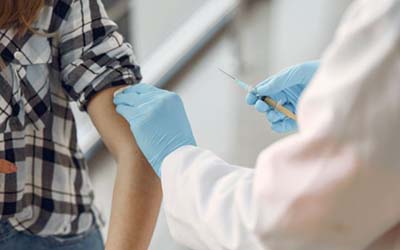
Press Release FOR IMMEDIATE RELEASE: March 5, 2024 CONTACT: Chelsea Wuth, 517-241-2112, WuthC@michigan.gov MDHHS urges residents to make sure they are up-to-date on measles vaccination as more cases diagnosed in Wayne and Washtenaw Counties If you suspect you may have measles, call your health care provider facility before visiting so they can take proper precautions to prevent additional exposures LANSING, Mich. – In response to the growing number of measles cases, the Michigan Department of Health and Human Services (MDHHS) is urging residents to make sure they and their family members are up-to-date on measles vaccinations. “If you are not vaccinated for measles, get vaccinated as quickly as you can,” said Dr. Natasha Bagdasarian, chief medical executive. “We are seeing increased cases of measles abroad and outbreaks of measles across the United States in the setting of declining childhood vaccination rates. Now measles is in Michigan, and it’s important to make sure you protect yourself from this vaccine-preventable disease.” Michigan residents can contact their health care provider or visit their local health department for additional information on ways to obtain the vaccine and schedule an appointment. Children eligible for the Vaccines for Children program may receive the vaccine from a provider enrolled in that program. Measles is a highly contagious, vaccine-preventable disease that is spread by direct person-to-person contact and through the air. The three cases in Michigan are not connected, which illustrates there are multiple places where you could be exposed to measles. The virus can live for up to two hours in the air where the infected person was present. Symptoms of measles usually begin 7-14 days after exposure, but can appear up to 21 days after exposure and may include:
If symptoms develop, residents are urged to not visit their doctor or emergency room unless they have called ahead so facilities can take precautions to prevent exposure to other individuals. With the risk for community spread, parents are encouraged to make sure their children are up to date on all their childhood immunizations, including the measles vaccine. Ninety percent of unvaccinated individuals who are exposed to measles will become infected. About one in five people who get measles will be hospitalized. In addition to Michigan’s case, 35 measles cases have been reported in 2024 in 15 other states to date. The measles vaccine is highly effective and very safe. A single dose of measles vaccine is about 93% effective at preventing measles, while two doses are about 97% effective. It is also effective if used within 72 hours of a measles exposure to prevent illness. However, some individuals with weakened immune systems may not be eligible to receive this vaccine. Getting vaccinated not only protects the individual receiving the vaccine but can also protect vulnerable individuals in our communities from being exposed to this illness. To learn more about the MMR vaccine, visit Vaccine for Measles (MMR Shot) | CDC. For more information about Measles cases in the U.S., visit Measles Cases and Outbreaks | CDC. Click here for Dr. Bagdasarian’s message about the measles vaccine. |
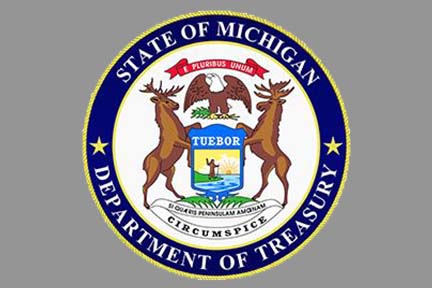
|
|
|
|
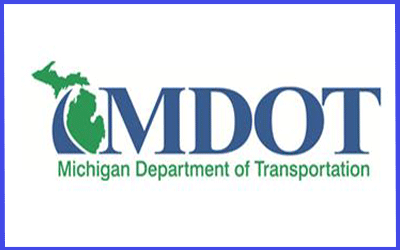

|
| FOR IMMEDIATE RELEASE March 1, 2024
|
MEDIA CONTACT Michael Frezell 517-281-6519 FrezellM@Michigan.gov |
Transportation grant will support redevelopment efforts at
site of former Palace of Auburn Hills
LANSING, Mich. – Today, the Michigan Department of Transportation (MDOT) announced the award of a state Transportation Economic Development Fund (TEDF) grant that will support critical redevelopment efforts at the site of the former Palace of Auburn Hills with the potential to create up to 963 new jobs and spark $278 million private investment in the city of Auburn Hills.
Administered by MDOT, the TEDF grant helps finance public highway, road and street projects that are critical to the movement of people and products, and getting workers to their jobs, materials to growers and manufacturers, and finished goods to consumers. The road project submitted by the City of Auburn Hills will improve M-24 (Lapeer Road), which will increase investment and job creation at the former Palace of Auburn Hills site and support a General Motors (GM) facility.
“The City of Auburn Hills appreciates MDOT’s support to install roadway improvements that will facilitate proper traffic flow in and out of the new GM facility,” said Mayor Brian Marzolf. “This area of Lapeer Road serves as a critical thoroughfare and this cooperative project will also increase the safety in the area. Perhaps most exciting is that this new building will greatly enhance economic vitality as the new plant will serve the needs of the GM Orion Assembly plant and the future of electric vehicles. Road projects like this connect workers to jobs and provide important links for our communities.”
“We appreciate MDOT’s infrastructure grant for the new Auburn Hills supplier logistics center that will support GM’s Orion Assembly plant,” said Paris Pavlou, executive director of Global Purchasing and Manufacturing Services, General Motors. “The improvements that will result on Lapeer Road will benefit not only GM, but our suppliers and the community.”
Years after the demolition of the Palace of Auburn Hills, the dormant site will be re-imagined with a new development. This development is for a supplier facility to serve GM’s expansion at its Orion Assembly Plant. GM will be leasing the facility from the property developer, PAH Real Estate, a subsidiary of Schostak Brothers and Co. Piston Automotive will be operating the facility on behalf of GM, pending approval of additional state incentives.
Piston Automotive is a part of Piston Group, a company comprised of Piston Automotive, LLC; Piston Interiors, LLC; Detroit Thermal Systems, LLC; and A. Lava and Son, LLC. The group was founded by former NBA champion Vinnie Johnson. Piston Group is one of the largest private, minority-owned automotive suppliers in North America. It designs, engineers, assembles, and manufactures a wide variety of automotive parts and systems. This planned $278 million combined private investment from Piston Automotive and PAH Real Estate has the potential to create 963 jobs through the transformation of the site of the former Palace of Auburn Hills.
The site selection process prioritized the proximity to the Orion Township plant, the road infrastructure between and surrounding the two sites, the timeline for a site to be operational, and site specification requirements. To secure this investment, the City of Auburn Hills, MDOT, the Road Commission for Oakland County, and PAH Real Estate worked collaboratively to determine the infrastructure needs and find a solution.
“It has been great working with MDOT, the City of Auburn Hills, and GM on the TEDF grant. We are very excited to have been selected and we are looking forward to breaking ground on this electrifying project,” said Jeffrey Schostak, president of Schostak Brothers.
In its current state, access to the site is inadequate for the proposed use of generating more than 1,000 daily commercial vehicle trips and more than 2,000 daily passenger trips to and from the site, which could cause significant impacts on traffic in the area. Proposed improvements, such as widening the roadway of southbound M-24 to include additional through-lanes, right and left-turn lanes, reconfiguring crossovers between the northbound and southbound lanes, modernizing and relocating traffic signals, and increasing access to the I-75 connector ramp, were deemed necessary.
“For nearly three decades, The Palace of Auburn Hills served as an economic and entertainment hub not just for the city, but the region and entire state,” said state Sen. Jeremy Moss, D-Southfield. “I am excited to see these state funds help breathe new life into this memorable location, creating jobs and continuing to support our vital auto industry while also improving our roads and transportation needs for all.”
“I’m thrilled to help deliver on the promises we’ve made to put people first by creating opportunities for more jobs and to grow the local economy,” said state Rep. Brenda Carter, D-Pontiac. “This TEDF grant will help Auburn Hills develop over 900 new jobs and is expected to generate millions in private investments. The improvements on M-24 funded through this grant will bolster the infrastructure with a new highway and other road and street projects, allowing future redevelopment of the former Palace of Auburn Hills site. This new grant is great news for the hard-working people in my district, especially. This investment from the state is an example of the future of Michigan. We are investing in people and infrastructure. Michigan is ready for world-class opportunities that spark economic expansion and growth.”
Total project cost for these road improvements is $2,533,620. Category A of the TEDF will provide $2,007,820, with the remaining non-construction project costs, including 20 percent match of $525,800, provided by the City of Auburn Hills and PAH Real Estate.
Enacted in 1987 and reauthorized in 1993, TEDF “Category A” or “Targeted Industries Program” grants provide state funding for public roadway improvements that allow road agencies to respond quickly to the transportation needs of expanding companies and eliminate inadequate roadways as an obstacle to private investment and job creation. Eligible road agencies include MDOT, county road commissions, cities, and villages. More information about the program is available online at www.Michigan.gov/TEDF.